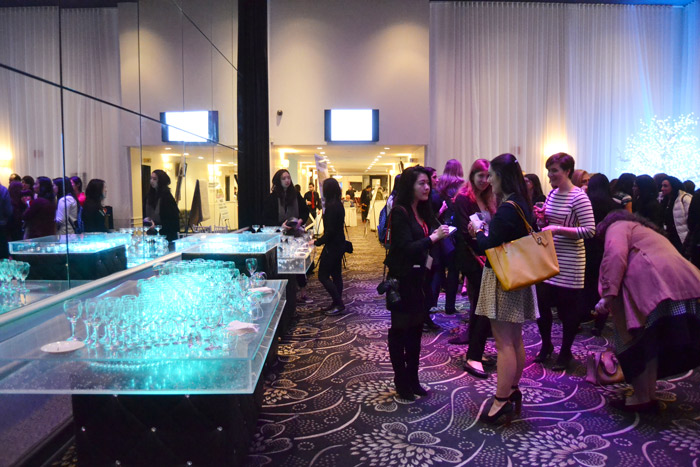Although women make up nearly half of the population, they are woefully underrepresented in leadership positions in the workplace. On March 12, sucessful female alumni returned to McGill to speak to students at the McGill Women in Leadership (MWIL) second annual leadership conference, titled Trailblazers’ Testimonies. The conference featured speakers who were board members of the McGill Women’s Alumnae Association who came from various career sectors such as engineering, politics, banking, and management. The speakers covered topics that ranged from leadership skills to the challenges women face when entering the workforce. The day consisted of six speeches and a period of discussion and networking.
Eleni Bakopanos, former member of parliament in the riding of Ahuntsic for the Liberal Party of Canada, spoke on the importance of parity and quota systems for gender equality.
“Unfortunately, […] the resolution on gender parity on boards and in cabinet […] was voted down by the young women in the youth commission of the Federal Liberal Party,” Bakopanos said. “I was actually stunned [.…] Personally, I have nothing against quotas […but] where there has been an increase in the number of women on boards, it has been a quota system [….] Women bring skills to the table that men do not bring.”
Regional Director of the Canadian Institute of Steel Construction Dr. Hellen Christodoulou discussed the damage stereotypes have on women in the workplace.
“Research has documented over and over again [the] gender bias and stereotypes in careers,” Christodoulou said. “These stereotypes are automatic, they are pervasive, and they will affect assignments, evaluations, emotions, unless us – the professional women, – we make that effort […] to teach. This problem requires the whole redesign of the workplace […] and of the whole mental culture that exists against women.”
Compared to the first edition of the event, Co-President of MWIL Erica Pederson was pleased with the status of this year’s speakers.
“The speakers that we brought in [last year] were not quite the calibre we managed to achieve this year, and we also had a smaller network at the time,” Pederson said.
Vice-President (VP) Sponsorship Ida Mahmoudi also stressed that the invited speakers were previous McGill students, and this presents an advantage for current students who attend the conference.
“What I think is important is that these speakers are actually McGill alumni,” Mahmoudi said. “What [MWIL] essentially tries to do is make the female community way more close-knit than it was the year before and the year prior to that […] so it’s way more direct and way more holistic because these speakers know what it’s like to be McGill students.”
Male representation at the event was fairly low, with only two men in attendance. Pedersen plans to make encouraging male attendance in the future.
“Definitely one of our future goals is to try to engage as many males as possible because it’s for the benefit of everybody, I think,” Pedersen said. “Because we are new and we are still trying to find our way and establish these events […] we are still a little bit focused more on tapping into female networks.”
According to Pederson, profits from the event will be given to the Native Women’s Shelter (NWS) of Montreal, an organization that provides support to Aboriginal, Inuit and Métis Women, with programs that help to prevent homelessness, addictions, family violence, and health issues.
“All of our profits from ticket sales, from sponsorship, [go to NWS] and we’re also taking monetary donations and donations of feminine hygiene products,” Pederson said. “It definitely means we start from ground zero next year, but I think it’s worth it.”









